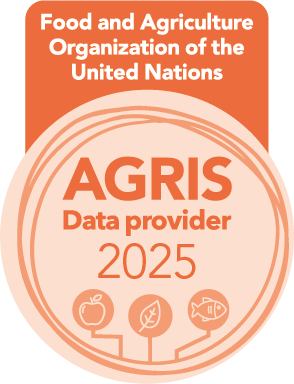Assessment of dietary intake among patients with peptic ulcer
Dietary intake in peptic ulcer patients
DOI:
https://doi.org/10.54393/df.v3i01.29Keywords:
peptic ulcers, dietary intake, carbohydrates, proteins, fats, fruits, vegetablesAbstract
One of the major and most common diseases of the stomach is peptic ulcer. It occurs when the mucus secretion in the stomach decreases, acid secretion increases or both at the same time. There are multiple dietary and lifestyle factors that can cause peptic ulcers. However, peptic ulcers can be treated by consuming a balanced diet along with medications. Objective: Assessment of dietary intake among patients with peptic ulcers. Methods: The assessment was carried out at Services hospital, Lahore. A sample of 100 patients aged between 20-80 years was taken by using non-probability convenient sampling. Data was collected with the help of pre-tested questionnaire and was analyzed by using SPSS version 21.0. Results: The results showed that chapatti was most commonly consumed by peptic ulcer patients from the carbohydrates group. Most patients consumed milk and chicken from the protein group while fats were not consumed in abundance. Fruits and vegetables made an integral part of the weekly dietary intake of the patients. Conclusions: Patients with peptic ulcers cannot consume spicy foods and fried items. In order to achieve complete cure, they tend to consume foods that provide satiety and do not cause any discomfort. A balanced diet along with proper medication can help alleviate symptoms of peptic ulcers.
References
Lanas A, Chan FK. Peptic ulcer disease. The Lancet. 2017 Aug 5;390(10094):613-24.
Søreide K, Thorsen K, Harrison EM, Bingener J, Møller MH, Ohene-Yeboah M, Søreide JA. Perforated peptic ulcer. The Lancet. 2015 Sep 26;386(10000):1288-98.
Chan FK, Lau JY. Peptic ulcer disease. Sleisenger and Fordtran's Gastrointestinal and Liver Disease: Pathophysiology/Diagnosis/Management. 10th ed. Philadelphia, PA: Elsevier Saunders. 2016 Sep 2.
Sverdén E, Agréus L, Dunn JM, Lagergren J. Peptic ulcer disease. Bmj. 2019 Oct 2;367.
Kavitt RT, Lipowska AM, Anyane-Yeboa A, Gralnek IM. Diagnosis and treatment of peptic ulcer disease. The American journal of medicine. 2019 Apr 1;132(4):447-56.
Søreide K, Thorsen K, Harrison EM, Bingener J, Møller MH, Ohene-Yeboah M, Søreide JA. Perforated peptic ulcer. The Lancet. 2015 Sep 26;386(10000):1288-98.
Oppong P, Majumdar D, Atherton J, Bebb J. Helicobacter pylori infection and peptic ulcers. Medicine. 2015 Apr 1;43(4):215-22.
Majumdar D, Bebb J. Helicobacter pylori infection and peptic ulcers. Medicine. 2019 May 1;47(5):292-300.
Fashner J, Gitu AC. Diagnosis and treatment of peptic ulcer disease and H. pylori infection. American family physician. 2015 Feb 15;91(4):236-42.
Lanas A, Chan FK. Peptic ulcer disease. The Lancet. 2017 Aug 5;390(10094):613-24.
Mustafa M, Menon J, Muiandy RK, Fredie R, Sein MM, Fariz A. Risk factors, diagnosis, and management of peptic ulcer disease. J Dent Med Sci. 2015;14(7):40-6.
Tsoi KK, Chiu PW, Chan FK, Ching JY, Lau JY, Sung JJ. The risk of peptic ulcer bleeding mortality in relation to hospital admission on holidays: a cohort study on 8,222 cases of peptic ulcer bleeding. Official journal of the American College of Gastroenterology| ACG. 2012 Mar 1;107(3):405-10.
LJubičić N, Puljiz Ž, Budimir I, Bišćanin A, Bratanić A, Pavić T, Nikolić M, Hrabar D, Supanc V. The influence of etiologic factors on clinical outcome in patients with peptic ulcer bleeding. Digestive diseases and sciences. 2012 Dec;57(12):3195-204.
Hooi JK, Lai WY, Ng WK, Suen MM, Underwood FE, Tanyingoh D, Malfertheiner P, Graham DY, Wong VW, Wu JC, Chan FK. Global prevalence of Helicobacter pylori infection: systematic review and meta-analysis. Gastroenterology. 2017 Aug 1;153(2):420-9.
Yeo SH, Yang CH. Peptic ulcer disease associated with Helicobacter pylori infection. The Korean Journal of Gastroenterology. 2016 Jun 1;67(6):289-99.
Chung CS, Chiang TH, Lee YC. A systematic approach for the diagnosis and treatment of idiopathic peptic ulcers. The Korean journal of internal medicine. 2015 Sep;30(5):559.
Akhondi-Meybodi M, Aghaei MA, Hashemian Z. The role of diet in the management of non-ulcer dyspepsia. Middle East journal of digestive diseases. 2015 Jan;7(1):19.
Saghaleini SH, Dehghan K, Shadvar K, Sanaie S, Mahmoodpoor A, Ostadi Z. Pressure ulcer and nutrition. Indian journal of critical care medicine: peer-reviewed, official publication of Indian Society of Critical Care Medicine. 2018 Apr;22(4):283.
Thomas DR. Role of nutrition in the treatment and prevention of pressure ulcers. Nutrition in Clinical Practice. 2014 Aug;29(4):466-72.
Tovey FI, Bardhan KD, Hobsley M. Dietary phosphilipids and sterols protective against peptic ulceration. Phytotherapy Research. 2013 Sep;27(9):1265-9.
Armstrong H, Bording-Jorgensen M, Dijk S, Wine E. The complex interplay between chronic inflammation, the microbiome, and cancer: understanding disease progression and what we can do to prevent it. Cancers. 2018 Mar;10(3):83.
Kim JH, Lee J, Choi IJ, Kim YI, Kim J. Dietary patterns and gastric cancer risk in a Korean population: A case–control study. European Journal of Nutrition. 2021 Feb;60(1):389-97.
Tsang WW, Loo WT, Chow LW. Balanced diet and regular exercises to prevent colorectal cancer in the elderly population: an explorative study. Asian Journal of Gerontology and Geriatrics. 2015 Jun 1;10(1):57-.
Downloads
Published
How to Cite
Issue
Section
License
Copyright (c) 2021 DIET FACTOR (Journal of Nutritional & Food Sciences)

This work is licensed under a Creative Commons Attribution 4.0 International License.
This is an open-access journal and all the published articles / items are distributed under the terms of the Creative Commons Attribution License, which permits unrestricted use, distribution, and reproduction in any medium, provided the original author and source are credited. For comments












